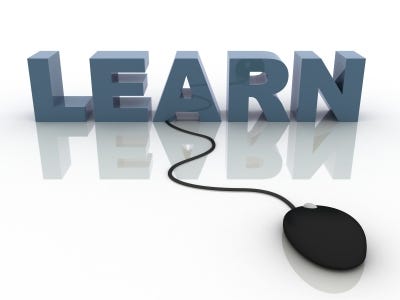Physiotherapy education for the 21st century
Guest post by Michael Rowe

The beginning of the 21st century has seen more technological advances than any other time in our history, at an accelerating rate of change. At the time of writing, we are seeing the introduction of robotics, gene therapy and nanotechnology into larger and larger aspects of health care which, when combined with advances in computing power that will soon exceed the processing power of the human brain, we seem poised on the brink of a shift in our understanding of what it means to be human. In addition to the obvious influence of information and communication technology on social structures, we are also experiencing a shift from vertical communication structures that privelidge hierarchies of control, to horizontal structures - like networks - that embody coordination, cooperation and collaboration (Bleakley, Bligh, Browne & Brice Browne. 2011). Regardless of what we call this cultural shift in perspective (postmodernity, late modernity, and posthumanism are all used somewhat interchangably), what matters is how we orient ourselves to the future (ibid.).
Given the scope of these changes and their inevitable impact on health professional education - embedded as it is within a broader socio-cultural context - we should expect to see a significant shift in how physiotherapists are prepared for practice. Yet, physiotherapy education continues to follow traditional lines of thinking and implementation, based in a historical model that not only ignores our understanding of how people learn but also fails to consider the changing needs of the communities we serve (Frenk et al., 2010). In addition, the focus on increasing the intake of health professional programmes that aims to graduate more therapists is insufficient to create a health workforce who are equipped with the appropriate competencies to respond to its evolving needs (WHO, 2013). The education of health professionals is often isolated from service delivery needs and does not adapt to the rapidly changing profile of the population. For example, an excessive focus on hospital-based education, together with education that segregates students into professional silos does not prepare them to work effectively in teams, nor to develop the leadership skills required in 21st century health services (ibid.).
Instead, physiotherapy educators must seek to adapt their curricula in order to produce professionals who have the capacity to identify and adjust to new environments in a continuous process of learning and adapting their competencies (WHO, 2013). As society and the health systems within it become increasingly complex and the needs of populations change accordingly, it seems appropriate to ask if our current education system is capable of preparing physiotherapy graduates to not only work in such environments, but to thrive.
In order to graduate young professionals who are capable of adapting to dynamic and complex systems, we cannot afford to continue learning in spaces that have not changed in 500 years. There is little evidence that physiotherapy educators have acknowledged society's changing conceptions of therapy and health, nor that they have adapted their teaching practices accordingly. In order to bring about transformative learning experiences for health professions students, Frenk et al., (2010) suggest three fundamental shifts from:
Fact memorisation to searching, analysis, and synthesis of information for decision making
Seeking professional credentials to achieving core competencies for effective teamwork in health systems
Non-critical adoption of educational models to creative adaptation of global resources to address local priorities
We need to ask ourselves what attributes health care professionals require in order for them to effectively negotiate the challenges of future working environments and whether or not our current teaching and learning spaces help students become capable, effective leaders in complex health systems? As we develop a more nuanced vision of what it means to be human in an increasingly complex world, we must ask critical questions that challenge the profession to think differently about what it means to be a physiotherapist and consequently, how physiotherapy education needs to change.
References: Bleakley, A., Bligh, J., Browne, J., & Brice Browne, J. (2011). Medical Education for the Future: Identity, Power and Location. Springer. Frenk, J., Chen, L., Bhutta, Z. A., Cohen, J., Crisp, N., Evans, T., Ö Zurayk, H. (2010). Health professionals for a new century: transforming education to strengthen health systems in an interdependent world. Lancet, 376(9756), 1923ñ58. Gordijn, B., & Chadwick, R. (2008). Medical enhancement and posthumanity. Springer. World Health Organization (2013). Transforming and scaling up health professionals' education and training.



